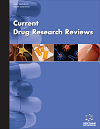
Full text loading...

Rheumatoid Arthritis (RA) is one of the most common inflammatory diseases, affecting millions of people worldwide, out of which 40% show poor clinical response while 5-20% do not respond to current medications, including biologic and targeted therapies. Platelet-Rich Plasma (PRP), an autologous blood-derived product enriched with growth factors, has emerged as a new orthobiologic for the treatment of such non-responsive patients. The growth factors present in PRP influence various fundamental processes, including inflammation, angiogenesis, cell migration, and metabolism in RA. PRP alleviates the inflammatory response via suppression of nuclear factor-κβ beta and phosphoinositide 3-kinase (PI3K)/protein kinase B (AKT) signalling pathway. It also modulates the intra-articular environment of the affected joints, characterised by the suppression of oxidative stress and synovial hyperplasia, and promotion of angiogenesis and chondrogenesis, thereby attenuating the arthritic changes in the synovium and cartilage. Till now, there appears to be a gap regarding uniformity in dosage regimens and treatment protocols among the studies demonstrating the efficacy of PRP in RA, and well-planned studies are required to explore the therapeutic potential of this new orthobiologic treatment.

Article metrics loading...

Full text loading...
References


Data & Media loading...